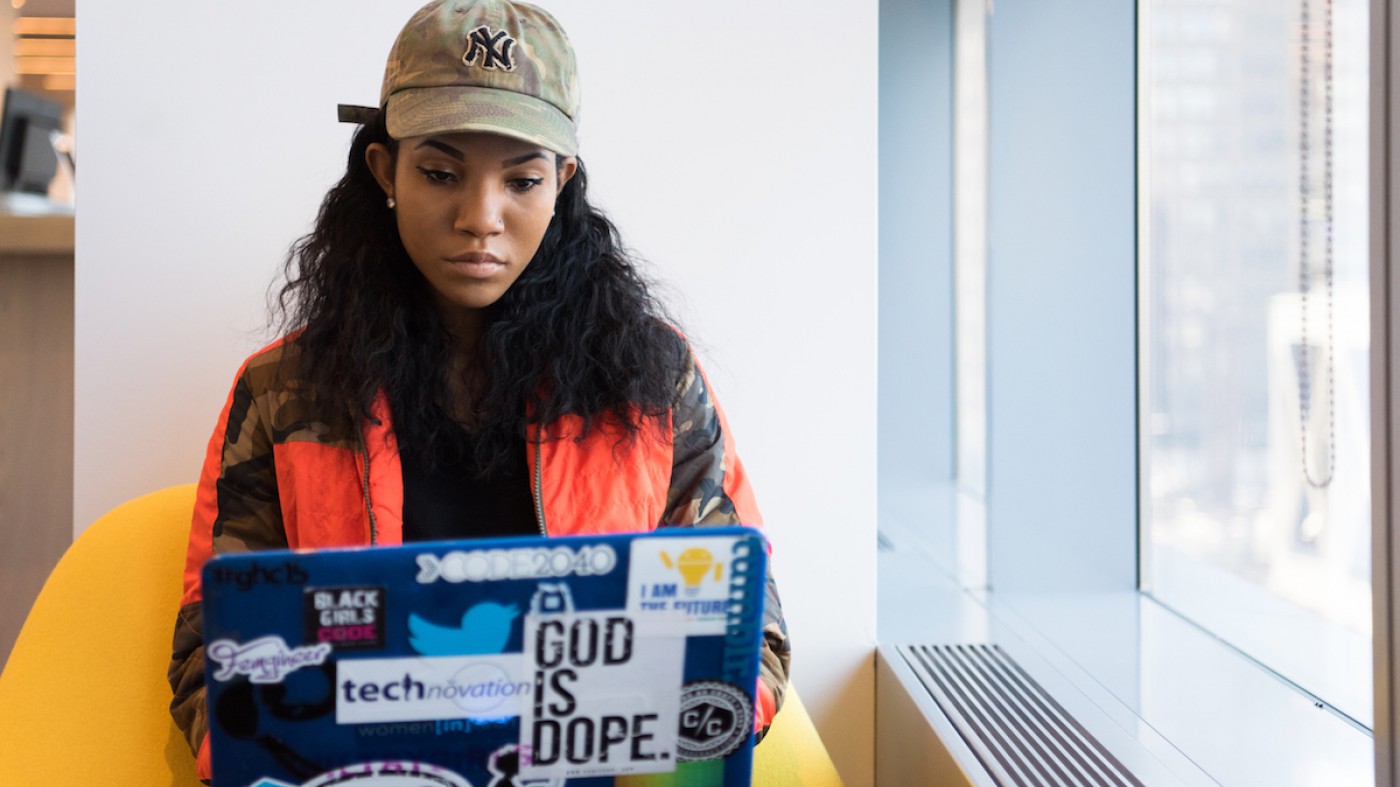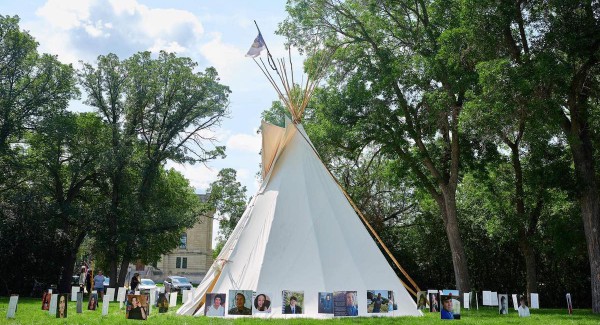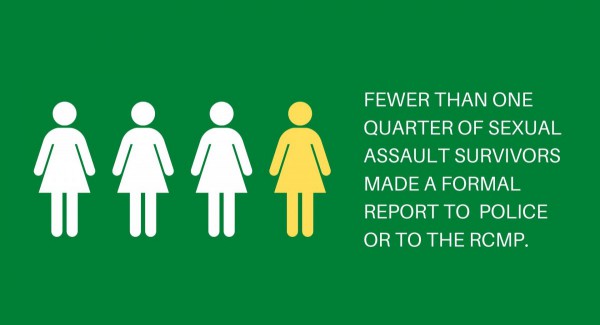Sexual violence and social media

Photo via Nappy.co
In the summer of 2020, the Victims Voices Regina Instagram account sparked a virtual movement, platforming the experiences of survivors of sexual violence through anonymous posts on social media.
Victims Voices Regina (VVR) – also known as Survivors’ Stories Regina – was created after multiple credible allegations of sexual harassment were levelled against mental health advocate Jim Demeray. Demeray was, at the time, the executive director of the Saskatchewan mental health advocacy organization UnderstandUs. He denied the accusations from 15 former employees at a Regina restaurant but ultimately stepped down from his role with UnderstandUs.
As the allegations against Demeray made their way through the news cycle, other survivors of sexual violence began to share their stories through the Victims Voices Regina Instagram account. VVR saw survivors speak out publicly about their abusers, many of whom were high-profile leaders within their communities. The account shed light on the prevalence of sexual violence in many industries in Saskatchewan – from restaurants to tattoo parlours to the music industry.
Then, a group of men who were named on VVR as perpetrators of sexual violence filed lawsuits against the account’s anonymous operator[s]. Abruptly, the account was shut down.
"It was the only chance we had to go public with what we have known for years and to do so in a way that our identity was protected."
Nonetheless, the stories shared on VVR sparked conversations about the prevalence of sexual violence in Saskatchewan. To better illustrate why survivors were – and are – sharing their experiences on social media, we spoke with four survivors who participated in the VVR page: Gia, Ann, Liv, and Cam. All four have chosen to use pseudonyms.
“We had tried every other avenue [to deal with our experiences] prior to this, and because it was anonymous, it was perfect. It was the only chance we had to go public with what we have known for years and to do so in a way that our identity was protected,” Gia explains.
All four say they thought it was inevitable that a social media page like VVR would be created in response to the failure of the systems meant to protect survivors of sexual violence. However, none of them say they could have predicted the full impact the account would eventually have.
“I didn’t think that it would be life-changing for anyone. I didn’t think it would start a cavalcade of complaints. I didn’t think it would be the thing that would push the boulder down the hill,” Liv says.
While there was overwhelming support for the individuals who shared their stories, we also saw survivors being blamed for the violence committed against them. The harmful attitudes and beliefs that prevent society from understanding the context of sexual violence also diverted attention from the larger systemic issues that critically need to be addressed.
It shouldn’t be surprising that Saskatchewan would have its own #MeToo moment. The province’s sexual violence statistics are significantly higher than elsewhere in the country – double the national average. In Saskatchewan, women and girls comprise 88 per cent of sexual violence survivors, with assaults predominantly occurring during youth and adolescence (ages 13 to 24).
Many survivors chose not to report their assault specifically because of the lack of control afforded to them by the criminal justice system.
Although anyone can be a victim of sexual violence, it’s important to recognize that sexual violence is a distinct form of gender-based violence, predominantly enacted against women by men. Gender-based violence is characterized by damaging social stigmas, false narratives, and biases placed upon the victim experiencing the violence. Sexual violence is one of the only crimes where society holds the victim responsible for the violation committed against them and actively judges the victim to be deserving of the assault based on perceptions of their conduct and morality. These toxic social stigmas directly contribute to survivors’ feelings of shame, guilt, and self-blame, and this ultimately reinforces low levels of police reporting and prevents survivors from accessing services and supports.
Sexual Assault Services of Saskatchewan (SASS), where both of the authors work, conducted a three-year research project to understand the epidemic of sexual violence in Saskatchewan. The findings highlighted how few survivors formally report their assaults to police – less than a quarter. We found that the decision to not report an assault to law enforcement was often a way for survivors to regain a sense of control after a traumatic violation of their autonomy. Many survivors chose not to report their assault specifically because of the lack of control afforded to them by the criminal justice system.
Other research further highlights how ineffective the system is in its administration of so-called justice for sexual violence. Research by Holly Johnson, associate professor of criminology at the University of Ottawa, shows that the majority of the cases reported to police in Canada – 64 per cent – do not result in charges. For less-violent sexual assaults, this low charge rate has remained stagnant for almost 40 years, despite the introduction, at all levels of the criminal justice system, of better understandings of sexual violence trauma and the biases faced by survivors.
Despite these incremental improvements, SASS data shows that it is interactions with law enforcement agencies that survivors find the most difficult and retraumatizing. Yet survivors are still expected to report their assault to police and then relive their assault during every stage of the years-long criminal justice process: reporting, investigation, court proceedings, verdict, and possible appeals.
“The anonymity allowed me to feel like I didn’t have to have supporting documentation, because I know my experience and I lived it."
It is understandable, then, when survivors of sexual violence create ways to protect each other and receive acknowledgement of their experiences outside of the justice system. VVR provided a digital space where a whisper network of sorts could be formed – one that could expand beyond private conversations and reach individuals across an entire city and province. The anonymous nature of the account allowed survivors to share their stories without facing the scrutiny, lawsuits, and disbelief survivors are often met with in other settings.
“The anonymity allowed me to feel like I didn’t have to have supporting documentation, because I know my experience and I lived it,” Liv explains.
The anonymity of the account also allowed survivors to name their abusers – an act that prominent male voices widely criticized because of its potential legal implications, as well as the central role that naming alleged perpetrators has come to play in the highly politicized social media landscape known as cancel culture. However, the survivors we spoke to say their intentions were to hold abusers accountable rather than to “cancel someone” via social media.
“I don’t think that the end pursuit is for the perpetrator to go to jail. The hope is that the person accused takes accountability and makes a commitment to becoming better,” Ann says. “That was part of why I named my abuser – there was a sliver of hope that he would take accountability for it. That’s really all I could have asked for: the acknowledgement that it was true, that it happened, and that he was sorry for the harm that it caused.”
All four survivors say the same thing when asked what compelled them to share their experiences. Their intent was twofold: first, to protect others; second, to create acknowledgement and accountability for what happened.
As Ann explains, “If even one person maybe avoids that situation [and the person I named] because of my story, that would be worth it. And then I also think, part of me hoped for some accountability from him, which I never got.”
“I want to make sure that people are protected and safe,” Liv adds.
This aligns with what sexual violence experts know to be true. “The two main reasons survivors report or disclose their assaults are number one, the protection of others, and number two, for some form of accountability or acknowledgement that what happened was wrong,” Sunny Marriner, a sexual violence expert and survivors’ justice advocate, tells the Sask Dispatch.
“I don’t think that the end pursuit is for the perpetrator to go to jail. The hope is that the person accused takes accountability and makes a commitment to becoming better.”
So, what is the appropriate way to disclose sexual violence?
As Cam explains, “There’s no right way for us [survivors] to do this because every single time we try […] no matter what avenue we try, whether we do it the ‘right way’ [or not] we’re still going to get pushback, we’re still going to get called liars, we’re still going be challenged and threatened with lawsuits of defamation.”
This is a common refrain of survivors of sexual violence – that regardless of whether they report their experiences or not, their actions are judged as wrong by broader society.
Most people who have grown up privileged by whiteness, gender identity, and socio-economic status have faith that existing systems will support and deliver justice to victims of crime. We are taught that there are systems in place where we can explain what happened to us and that people in positions of trust and authority will find the truth, hold those who harm us accountable for their actions, and ensure the safety of others. From the time we are children we are taught to tell the truth and that truth-telling will beget justice. But in the cases of sexual violence, what happens is often the opposite. It is understandable, then, that survivors would seek an alternative means to accomplish their goals of safety and accountability.
The conditions that led to the creation of VVR are not new. “There was so much labour that was done for years prior to that [VVR] movement. I had engaged in multiple whisper campaigns with people about this [sexual violence],” Gia says. “All the work and all the hidden activism we were doing before – it just didn’t seem like it was getting [us] anywhere.”
All four survivors recount how long it took them – years or even decades – to reach a place where they felt safe enough to share their stories publicly. Their decisions to share were not born from a thoughtless impulse: “Nobody really understands when they see a post. They’re just like, ‘Oh, it’s just a bunch of women; they’re not really thinking about the consequences of their actions,’” says Gia. In reality, “This is a very, very thought-out reaction. We’ve been thinking about something like this for years and years.”
Women and girls have been sharing their experiences of sexual violence since time immemorial. Whisper networks have long been a means to warn and protect women, but they also act as a space to seek support. All four survivors shared how valuable VVR was in that respect: the page was full of community members and other survivors helping direct people to services or offering themselves and their private phone numbers for personal support.
“This is a very, very thought-out reaction. We’ve been thinking about something like this for years and years.”
VVR also sparked conversations about how we, as a society, treat people and how common experiences of sexual violence truly are.
“[The page helped] people understand that this is actually not something that is unusual. This is an experience that so many women in particular, but [also] so many [other] people, have to experience regularly,” Liv explains.
Survivors are forced to examine their every action or perceived inaction in the wake of a sexual assault committed against them. For the first time, Gia believes the page called men in to examine their interactions with women: “I think it was important as well for men, or anyone, that may have perpetrated sexual violence in their past to reflect on their actions, their friends’ actions. I know some men that were following the page had to do some reflection and maybe address some behaviours in their past that they never really considered before.”
“I owe a lot to Victims Voices because we were able to explicitly name these things [sexual violence], because I feel like we had never been able to move forward with anything because no one would name it. No one could ever say the words because I think it would just make it real,” says Gia.
Although the VVR page no longer exists, the movement it created remains and so do the harmful impacts of sexualized violence in Saskatchewan. By posting experiences of sexual violence online, survivors have asked the public to take responsibility for the stories they hear. We can take responsibility in myriad ways: being a safe person to whom survivors can disclose; creating safe work culture free from sexual harassment; boycotting businesses or venues that support perpetrators of sexual violence; and donating our time or money to sexual violence agencies.
But above all, we can meet survivors with the same grace and compassion that they have extended to the people who have abused them. In doing so, we can provide survivors with what they want most: the protection and safety of others, the acknowledgement that sexual violence is wrong, and a commitment to holding ourselves and our communities accountable.
The next time a survivor chooses to come forward with their story and asks, “Can you hear me now? Are you listening?,” we know we can say, “Yes, we are listening now, and we believe you.”


